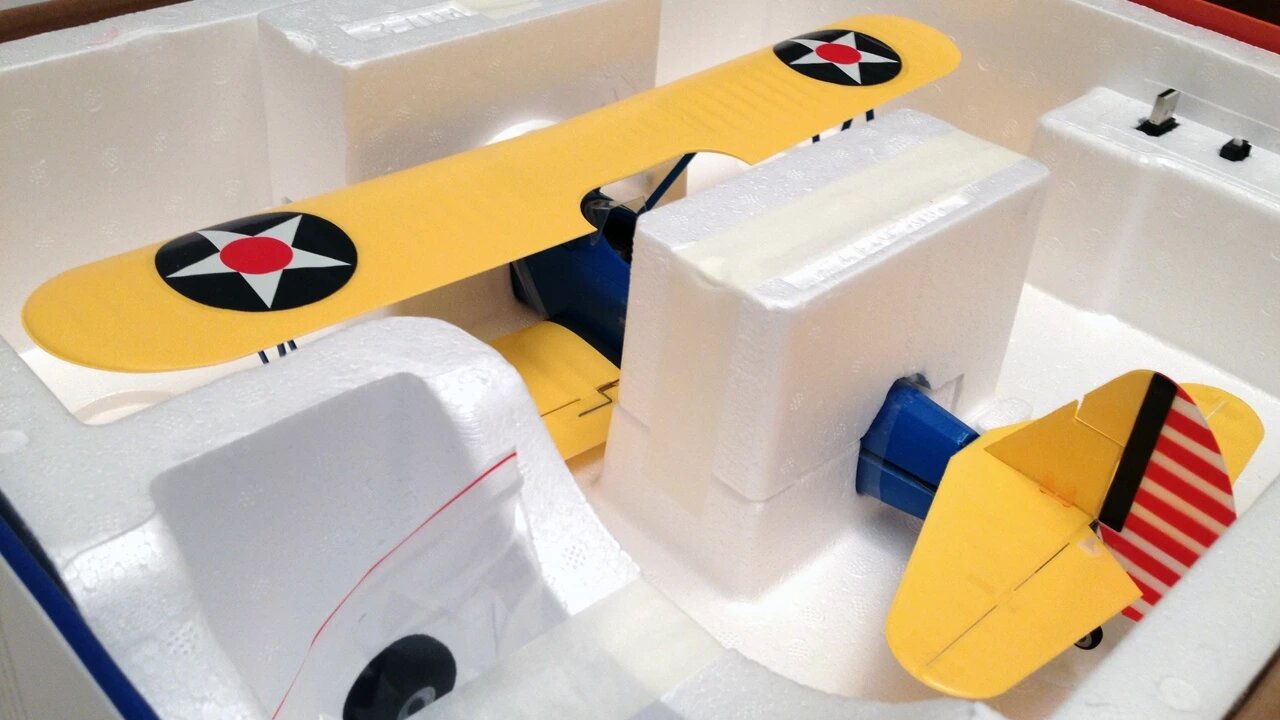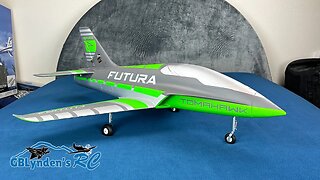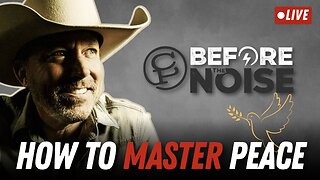Premium Only Content

E-flite UMX PT-17 Stearman BNF Warbird Biplane with AS3X Technology Unboxing and Review
This video is the unboxing and review for the E-flite UMX PT-17 Stearman BNF Warbird Biplane with AS3X Technology. In this video I talk about my first impressions of this plane and do some demonstrations with it, though I don't actually fly it since the weather is too windy for that at the present time.....but soon!!! :)
Get the UMX PT17 here:
- Amazon: https://amzn.to/2IkbVHp
- Hobbyzone: https://bit.ly/2zvPnB2
The links in this description are affiliate links. They give me a small commission on sales which helps support the channel and keep it independent: https://www.amazon.com/shop/gblyndensrc
RC Equipment Used Or Mentioned In This Video:
- E-flite UMX PT17: https://amzn.to/2IkbVHp
- Spektrum DX6 Radio: https://amzn.to/2RgoDes
I also compare it to the Hobbyzone Champ Ultra Micro and the Parkzone Mini Vapor Ultra Micro RC Plane. In hindsight, I really should have compared it to the E-Flite UMX Pitts, so that is the most comparable plane to this they make.
I assume that is it going to be a plane I have to fly scale much like I do with my E-flite UMX B-17 Flying Fortress, but I hope that I get to have some more fun with it than just flying it around all scale.
The Boeing-Stearman Model 75 or Stearman (Boeing) Model 75 is a biplane used as a military trainer aircraft, of which at least 10,626 were built in the United States during the 1930s and 1940s.[1] Stearman Aircraft became a subsidiary of Boeing in 1934. Widely known as the Stearman, Boeing Stearman or Kaydet, it served as a primary trainer for the USAAF, the USN (as the NS & N2S), and with the RCAF as the Kaydet throughout World War II. After the conflict was over, thousands of surplus aircraft were sold on the civilian market. In the immediate postwar years they became popular as crop dusters, sports planes, and for aerobatic and wing walking use in airshows.
After World War II, the thousands of PT (primary trainer)-17 Stearmans were auctioned off to civilians and former pilots. Many were modified for cropdusting use, with a hopper for pesticide or fertilizer fitted in place of the front cockpit. Additional equipment included pumps, spray bars, and nozzles mounted below the lower wings. A popular approved modification to increase the maximum takeoff weight and climb performance involved fitting a larger Pratt & Whitney R-985 engine and a constant speed propeller. An iconic movie image is a Stearman cropduster chasing Cary Grant across a field in North by Northwest.
The US Army Air Forces Kaydet had three different designations based on its power plant:
PT-13
with a Lycoming R-680 engine. 2,141 total all models.[2]
PT-13 Initial production. R-680-B4B engine. 26 built.
PT-13A R-680-7 engine. 92 delivered 1937-38. Model A-75.
PT-13B R-680-11 engine. 255 delivered 1939-40.
PT-13C Six PT-13Bs modified for instrument flying.
PT-13D PT-13As equipped with the R-680-17 engine. 353 delivered. Model E-75.
PT-17
With a Continental R-670-5 engine. 3,519 delivered
PT-17A 18 PT-17s were equipped with blind-flying instrumentation.
PT-17B Three PT-17s were equipped with agricultural spraying equipment for pest-control.
-
 5:51
5:51
GBLynden's RC
1 year agoDetailed Unboxing | FMS Futura 64mm EDF Sport Jet
276 -
 1:00:40
1:00:40
Chad Prather
10 hours agoHow To Live An UNSHAKEABLE Life!
46.4K17 -
 LIVE
LIVE
The Chris Salcedo Show
13 hours ago $4.43 earnedDems Only Like Violence Directed At Conservatives
769 watching -
 DVR
DVR
Welcome to the Rebellion Podcast
13 hours ago $0.61 earnedHappy Hump Day - Welcome to the Rebellion Podcast Live 10/22
10.1K -
 8:29
8:29
Freedom Frontline
15 hours agoFox News Analyst EXPOSES Obama and Hillary’s Dirty Secret
20.4K17 -
 21:34
21:34
Jasmin Laine
18 hours agoReporters STUNNED as Carney’s “No Deal Coming” LEAKS—Billboards EXPLODE Nationwide
25K30 -
 1:22:28
1:22:28
Crypto Power Hour
12 hours ago $2.68 earnedThe StableCoin Queen, Author, Cybersecurity Expert Alyze Sam
28.6K5 -
 18:56
18:56
Degenerate Jay
18 hours ago $1.31 earnedIs Silent Hill f Worth Buying?
18.6K2 -
 39:24
39:24
Uncommon Sense In Current Times
18 hours ago $1.77 earnedThe Curative Culture Model | Healing Workplaces & Leading with Humanity | Doug Shaw
23.5K1 -
 2:02:45
2:02:45
BEK TV
1 day agoTrent Loos in the Morning - 10/22/2025
16.1K1